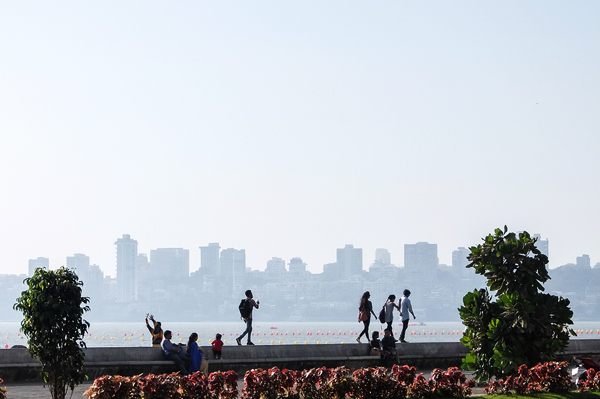Enrolling in the Public Healthcare System in India
Summary: A primer on how to enroll in the public healthcare system in India.

If you're planning to enroll in the public healthcare system in India, this article covers the requirements for foreigners to be able enroll in the public healthcare system, the steps involved and more.
India's public healthcare system, also known as the National Health Mission (NHM), is a government-run initiative aimed at providing accessible and affordable healthcare to all residents. The quality of public healthcare in India varies widely, with some areas offering world-class facilities and others struggling with basic healthcare infrastructure. The cost of public healthcare is generally low, making it accessible to a large portion of the population. However, it is not mandatory for all residents to use the public healthcare system, and many people opt for private healthcare due to perceived better quality and service.
Eligibility for Foreigners
Foreigners residing in India are eligible to use the public healthcare system. However, the process of enrolling in the system can be complex and time-consuming. It is important to note that the public healthcare system in India is not insurance-based, so there is no formal enrollment process. Instead, healthcare services are provided on an as-needed basis, with costs often being very low or even free.
Steps for Using Public Healthcare
- Obtain a valid visa and residence permit: Before you can access healthcare services in India, you must have a valid visa and residence permit. This is the first step towards establishing your eligibility.
- Find a local healthcare facility: Once you have your documents in order, you can find a local healthcare facility that is part of the public healthcare system. This could be a hospital, clinic, or health center.
- Register at the healthcare facility: At the healthcare facility, you will need to register and provide your personal details. This may include your passport, visa, and residence permit.
- Access healthcare services: Once registered, you can access healthcare services as needed. You may be required to pay a small fee for some services, but many are provided free of charge.
It's important to note that while the public healthcare system in India is accessible to foreigners, many expats and long-term visitors choose to use private healthcare or international health insurance. This is due to the perceived higher quality of care, shorter waiting times, and the availability of more advanced treatments in private hospitals.
Private Healthcare and Health Insurance
Private healthcare in India is renowned for its high quality and is often comparable to healthcare in Western countries. Many private hospitals in India are internationally accredited and offer a wide range of services, from routine check-ups to complex surgeries. However, private healthcare can be expensive, and it's recommended to have comprehensive health insurance to cover the costs.
Many foreigners living in India choose to purchase international health insurance, which can provide coverage for both public and private healthcare services. These insurance plans can be tailored to individual needs and often include benefits such as medical evacuation, repatriation, and coverage for pre-existing conditions.
In conclusion, while the public healthcare system in India is accessible to foreigners, it's important to consider all your options, including private healthcare and international health insurance, to ensure you have access to the best possible care during your stay in India.
 William Russell
William RussellGet Quote
William Russell's private medical insurance will cover you and your family wherever you may be. Whether you need primary care or complex surgery, you'll have access to the best hospitals & doctors available. Unlike some insurers, we also include medical evacuation and mental health cover in our plans (except SilverLite). Get a quote from our partner, William Russell.
 William Russell
William RussellWilliam Russell's private medical insurance will cover you and your family wherever you may be. Whether you need primary care or complex surgery, you'll have access to the best hospitals & doctors available. Unlike some insurers, we also include medical evacuation and mental health cover in our plans (except SilverLite). Get a quote from our partner, William Russell.
Get Quote
About the Author
 Joshua Wood, LPC joined Expat Exchange in 2000 and serves as one of its Co-Presidents. He is also one of the Founders of Digital Nomad Exchange. Prior to Expat Exchange, Joshua worked for NBC Cable (MSNBC and CNBC
Primetime). Joshua has a BA from Syracuse and a Master's in Clinical and Counseling Psychology from Fairleigh Dickinson University. Mr. Wood is also a licensed counselor and psychotherapist.
Joshua Wood, LPC joined Expat Exchange in 2000 and serves as one of its Co-Presidents. He is also one of the Founders of Digital Nomad Exchange. Prior to Expat Exchange, Joshua worked for NBC Cable (MSNBC and CNBC
Primetime). Joshua has a BA from Syracuse and a Master's in Clinical and Counseling Psychology from Fairleigh Dickinson University. Mr. Wood is also a licensed counselor and psychotherapist.
Some of Joshua's articles include Pros and Cons of Living in Portugal, 10 Best Places to Live in Ireland and Pros and Cons of Living in Uruguay. Connect with Joshua on LinkedIn.
Additional Information:
- India Guide
- Healthcare & Health Insurance in India
- Members Talk about Healthcare & Health Insurance in India
- Best Places to Live in India
- Real Estate in India
- Guide to Real Estate in India
- Pros & Cons of Living in India
- Cost of Living in India
- 10 Cultural Faux Pas to Avoid While Living in India
- Top Hospitals in India by Specialty
- Best Places to See While on a Look-See Trip to India (Plus, Itineraries)
- Moving to India with a Pet
- 2025 Guide to Living in India
- Pros and Cons of Living in India 2025
- 2025 Guide to Moving to India




